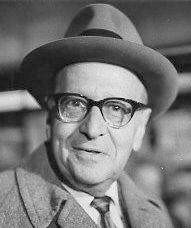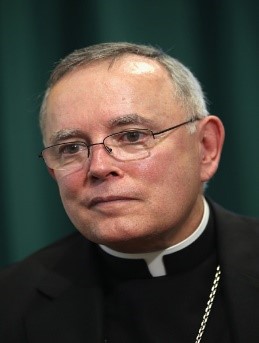We are living in a time when the implications of the worldview shift from modernism to postmodernism are becoming evident in daily life.
What are the ideological roots driving postmodernism?
Judeo-Christian Theism replaced ancient pagan ideologies and led to the rise of Western civilization. This was the premodern era; people recognized that the universe, created by the trinitarian God, was an integrated material and spiritual reality. We can know from the comprehensive sources of divine revelation, science, and reason. Man is an individual living in community. Human beings were made to be self-governing within the framework of a moral universe.
Modernism, the worldview of naturalism or atheism, denies God and begins with nature. “In the beginning, nature …” In this framework, there is no transcendent or spiritual reality. We know strictly by science and reason. Because God does not exist, there is no reality or revelation outside nature. Man becomes the center of the universe, individualism—absolute autonomy—becomes the accepted religion. Living outside the framework of a moral universe, the individual has license to do whatever he pleases.
In reaction to the barrenness of the atheistic and materialistic worldview that increasingly stresses consumerism and the melding of human beings with machines, postmoderns have abandoned the naturalistic framework of matter for that of mind, or even the “spiritual.” Reason and material reality are no longer relevant, argue the postmoderns. Reality is no longer a given but fungible, formed by linguistic, social construction and narrative. The concept of the autonomous individual is replaced by egalitarianism and solidarity of offended social groups.
As we have written elsewhere, a new ideology, Cultural Marxism, was born through a collaboration of Jewish intellectuals at the Frankfurt School in Germany, between the first and second World Wars. With the rise of the Third Reich, these Jewish scholars took refuge in the United States where their ideas were seeded into Western Universities.
 Cultural Marxism intends to overthrow Western Civilization
Cultural Marxism intends to overthrow Western Civilization
The goal of Cultural Marxism was nothing less than the overthrow of Western Civilization. The major tool was Critical Theory, a technique to deconstruct the ideas and underpinnings of the West. Max Horkheimer, one of the researchers at the Frankfurt School, describes Critical Theory as a tool “to liberate human beings from the circumstances that enslave them.” In their view, Western culture and the civilization it birthed has enslaved the masses. For the victimized to be set free, Western Civilization needs to be dismantled.
Traditional Marxists saw the struggle as material: the capitalists vs. the exploited, the haves vs. the have nots, the powerful vs. the powerless.
Cultural Marxism redefined the struggle as social and cultural: majority vs. minority, white European males vs. the exploited, white privileged vs. the underprivileged—blacks, Hispanics, women, and LGBT.
When scholars from the Frankfurt School moved to the USA, American universities became the incubators of this new ideology. Cultural Marxism permeated multiple academic departments: the Humanities, Social Sciences, Anthropology, Women’s studies, Black studies, LGBT studies, et al.
From the universities these ideas spread into society. Artists began to propagate the ideas through music, film, TV and other art forms. The ideas took root in the culture, influencing the creators of institutions, structures and laws. Without recognizing what was happening, lawyers, politicians, and entrepreneurs entrenched the ideas in the structures of the nation.
Cultural Marxism has been the driver of identity politics, the division of fellow human beings along lines of race, tribe, sexual orientation, religion. The point was to create “minorities” who, by virtue of their minority status, are thereby oppressed.
The church must stand against Cultural Marxism
The latest iteration seeks to break up the family and destroy the fundamental concept of binary human sexuality. We witness this in the redefinition of marriage, and the propagation of laws intended to reinvent human sexuality. Birth certificates suppress the sex of newborns. People are legally required to call others by their preferred gender identity rather than their actual, biological nature.
Where is the church in all this? Very often we have closed our eyes, ears and mouths to the encroaching storm, hoping these things will simply blow over.
 Charles Chaput, Archbishop of Philadelphia, writes:
Charles Chaput, Archbishop of Philadelphia, writes:
We’ve lost our courage: Apostasy is an interesting word. It comes from the Greek verb apostanai – which means to revolt or desert; literally ‘to stand away from.’ [Christians] … don’t need to publicly renounce their baptism [faith] to be apostates. They simply need to be silent when their … faith demands that they speak out; to be cowards when Jesus asks them to have courage; to ‘stand away’ from the truth when they need to work for it and fight for it” (emphasis added).
What is required is a new generation of young Christians willing to train the crosshairs of truth and love on these issues in the society.
- Darrow Miller







4 Comments
Beth Wood
April 18, 2018 - 8:25 amDarrow: Come visit Canada to see this in living colour! The challenge I live is how to respond as Jesus would to the situation of our Indigenous peoples who have survived our intended cultural genocide as we took them to be “less than human” for generations — to the point of removing children from their homes and placing them in the care of the government for generations — a practice continued today. With the churches being complicit in having left communities empty and grieving for their children for a very, very long time…it is a complex situation. We are busy inviting people to re-define reality according to their own whim in so many ways…competely denying and defying the Creator of it all….but I do think we need to be sure we are being clear about the complexities of the suffering and injustice being lived by some among us. I sometimes fear we will lose this again in trying to correct the conversation….B.
admin
April 19, 2018 - 11:02 amBeth
thanks for your note. The cross marks the reality of the meeting of love and truth, compassion and justice. Somehow, in these things, we need to live in the shadow of the cross, neither elevating love over truth or truth over love.
makawant
May 1, 2018 - 12:36 pmJurgen Habermas a “Cultural Marxist” of The Frankfurt School wrote a book with Pope Ratzinger, coined the phrase “leftwing fascism”, and is the key academic critic of Post-modernism.
Likewise, Adorno was protested by student radicals for calling the police on them. He was specifically protested by radical feminists.
These guys pointed out The Culture Industry – which is now predominately left wing. So to attack them for pointing it out – seems very silly. The Frankfurt School don’t easily fit into the left right dichotomy so it’s disappointed to see the constant attempt to write them off as communists. Infact, Marcuse wrote various critiques of Soviet Marxism for the state department during the Cold War (as he did with the Nazis during WW2).
“Cultural Marxism” is a childish conspiracy theory in this regard. The real cause of Identity Politics was the black civil rights of Barbara Smith – the Boston woman who pioneered that movement. She was not part of The Frankfurt School. That’s the conspiracy.
admin
May 3, 2018 - 10:16 amThank you for your comment. I would suggest that, no matter what name they call themselves, or by which others identified them, adherents of postmodernism are largely reacting to the deadness of modernism, the overthrow of the transcendent for the sake of a naturalistic ideology founded on reason and science. In search of a transcendent reality, the postmodern denies the pillars of modernism, reason and reality. This reaction will prove as empty as the materialistic culture they seek to replace.
The answer to each of these extremes is the existence of an infinite, personal God who created a real universe that has both a natural and transcendent existence.
Darrow Miller